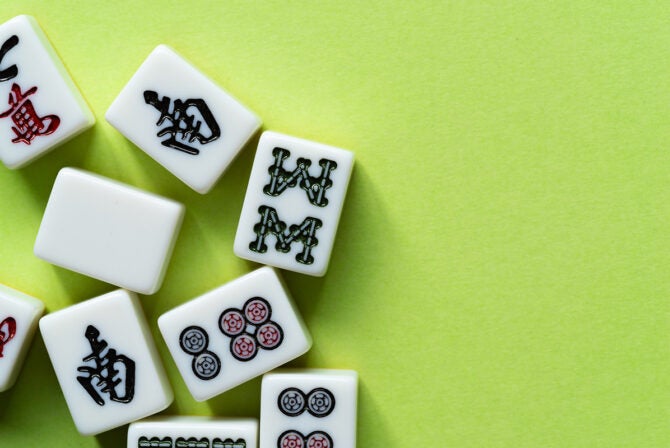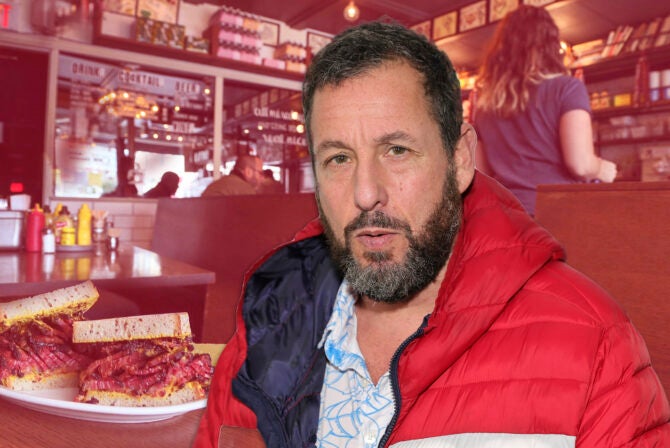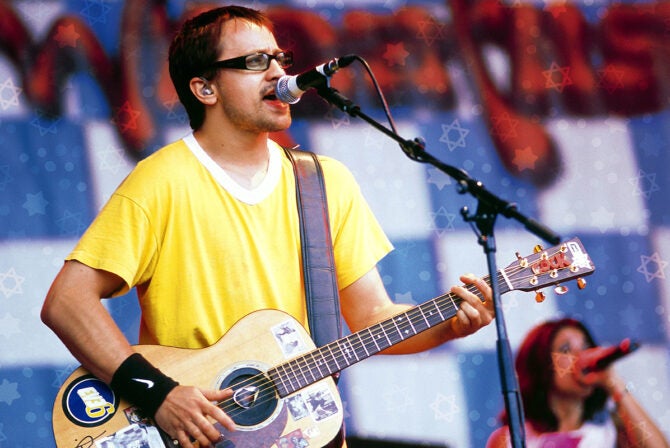Both my daughters loved music from their earliest days. When I was pregnant, my husband would play his guitar to my belly, and we’d watch our baby dance. As cranky newborns, music would always soothe them. (Is there a blessing for the person that invented the crib CD player?) It became part of their bedtime routines. Each night, everything from the Beatles to Dave Matthews Band would fill their rooms.
It was an exhaustion-fueled meltdown that had me turning to music one afternoon. My firstborn was about 4 months old, and well into a nightmarish phase that my pediatrician called “Sleep Regression.” After days of misery, nothing would calm her. In desperation, I jiggled the baby in my left arm while searching the web with the other.
Youtube saved me. I looked down at my crying baby. “Want to learn Hebrew, sweetie?” I asked her. She whimpered, unsure. I hit play. Debbie Friedman’s “Aleph Bet” filled the room. It had been awhile since I heard it, and the video helped refresh my memory. I played it another time or two, and it worked. She still refused to nap, but at least she was smiling.
READ: Teaching My Son to Be a Mensch Through Music
For months, the Aleph Bet was my go-to song each time my baby cried. I sang it in cars, restaurants, or whenever my older daughter was sad. She could sing it and identify Hebrew letters long before her second birthday. Together we learned the silly songs from “Shalom Sesame.” By the time my second daughter was born, we simply added her to the chorus.
My older daughter was the motivation behind my post last year, “The Top 7 Perks to being Jewish in December”; now 4, she was dealing with a bit of holiday envy. And while I didn’t want to make Hanukkah into “Jewish Christmas,” I didn’t want her to feel cheated. So, thanks to the comment section and Kveller readers, I was able to build a sizeable playlist. We listened to it on repeat for weeks. Together, we’d dance around the room. They’d wiggle their tushies and spin. And at some point, my older daughter stopped her requests for a Christmas tree. “Can we watch ‘Candelight’ again?” they asked, instead.
READ: Meet the Co-Founders of ‘My Kind of Music,’ a Program That Includes Children With Disabilities
I realized that music had stopped being simply a pacifier. It had changed, evolved into a more complex tool for us. It helped me build my daughters’ Jewish identities. They wanted to know more about their favorite holiday songs. They were genuinely interested in the celebrations and the rituals that accompanied them. And while they have every PJ Library book known to toddlerhood, it was music that inspired several family discussions about what it meant to be Jews.
This Passover was a replica of years past: days spent with our family eating way too much food. There was the added bonus of being part of my nephew’s first holiday. And music. Together, my daughters bopped to their favorite songs, encouraging their 4-month-old cousin to do the same. We played it as they ate matzah and drank bowls of their grandma’s chicken soup. They recited the four questions and giggled through another silly song about frogs jumping on Pharaoh’s head.
READ: What My Baby’s In Utero Music Tastes Say About Her (And Me)
They wanted me to play the Maccabeat’s “Dayenu” over and over again. They loved it (except the “scawy” heavy metal verse. My daughters weren’t fans of the guy dressed as an Egyptian).
“Mama, what Dayenu mean?” asked the 2-year-old. It was clear she wanted to understand the song she loved.
“It is enough,” I said as I started explaining the meaning of the holiday. And it is enough. For now.







